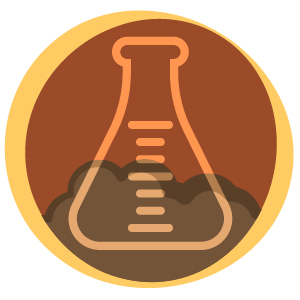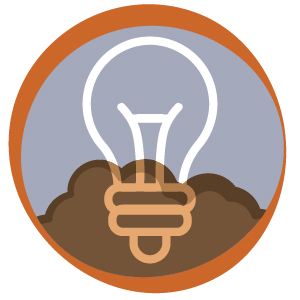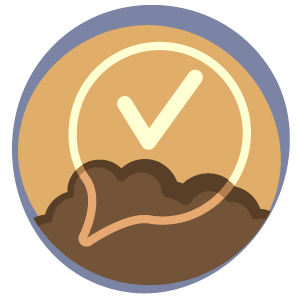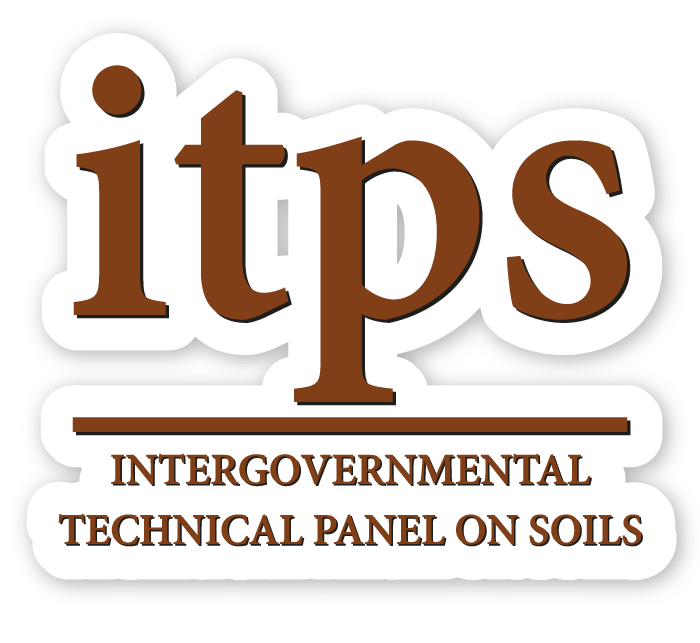The Global Symposium on Soil Information & Data (GSID24), co-organized by the Food and Agriculture Organization, its Global Soil Partnership and the Institute of Soil Science, Chinese Academy of Sciences (ISSCAS) will be held in Nanjing, China, September 25-28, 2024.
This symposium will serve as an international forum for stakeholders, encompassing policymakers, researchers, and practitioners, to explore the important role of comparable and reliable soil data and information in addressing global challenges such as food security, climate change, and sustainable soil management.
Emphasizing the significance of data-driven decision-making, GSID24 aims to catalyse the development and implementation of policies grounded in robust soil data, thereby enhancing the efficacy of global efforts towards sustainable development and climate resilience.
Main objectives of the symposium
- Showcase advancements and address knowledge gaps in soil data collection, analysis, and mapping, utilizing innovative methods including remote sensing and machine learning.
- Demonstrate successful implementation of FAIR standards in establishing soil information systems.
- Present strategies for utilizing quality soil data in policy-making at all levels and driving effective global development initiatives.
- Discuss ethical considerations and data ownership in soil science, promoting open scientific inquiry while protecting individual and community rights.
- Highlight the importance of capability building and open data through information systems and collaborative platforms.
Call for abstracts
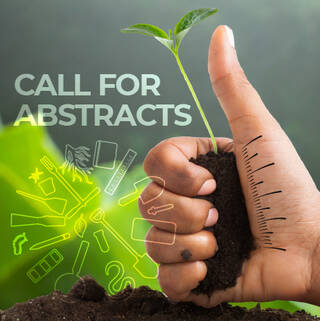
The call for abstracts has been extended!
NEW DEADLINE: 10 June 2024
Abstracts should address any of the four themes outlined below and will be evaluated by the Scientific Committee.
Abstracts must be written in English, should not exceed 2000 words and will be submitted on the online portal. After assessment by the Scientific Committee of the Symposium, authors will be informed of the decision regarding their abstract submission by 15 June 2024. Details regarding oral and poster presentations will be provided at this time.
Main themes
The symposium will be organized along four themes:
|
Theme 1
|
Mainstreaming soil data: innovations in analysis, standardization, harmonization and communication This theme addresses solutions and challenges in soil analysis, soil data quality, standardization, harmonization and its associated uncertainty. The theme's primary objectives are to highlight advancements in soil analysis techniques, emphasizing the importance of data quality, and explore strategies for its effective interpretation and communication. |
Sub-theme 1.1: Laboratory Techniques and Standard Procedures for Soil Analysis
Sub-theme 1.1: Laboratory Techniques and Standard Procedures for Soil Analysis
Sub-theme 1.1 aims to showcase the latest advancements, challenges and gaps in laboratory and field techniques for soil analysis, soil data quality, and handling. The sub-theme will focus on the development and implementation of standard operating procedures that ensure consistency, reliability, and accuracy in soil testing. Participants will explore a range of topics from traditional soil testing methods to innovative laboratory techniques, including the analysis of novel soil parameters.
Sub-theme 1.2: Soil data standardisation and harmonisation
Sub-theme 1.2: Soil data standardisation and harmonisation
Making data FAIR (Findable, Accessible, Interoperable, Reusable) is a major step towards more efficient data use and an increase in data informed decision making by allowing easier collation of existing and new data through annotation, standardization and harmonisation of soil data. This subtheme addresses innovations and good practices in all four of these subtopics: metadata annotation, soil data (model and definitions) standardization, soil data harmonization through the development of transfer functions (both between lab methods and pedotransfer functions).
Sub-theme 1.3: Evaluating, interpreting and communicating soil data and its uncertainty
Sub-theme 1.3: Evaluating, interpreting and communicating soil data and its uncertainty
Sub-theme 1.3 aims to highlight strategies for effectively quality assuring and quality checking (QA/QC) soil data, estimating its uncertainty, facilitating its interpretation, and communicating soil testing results and assocciated uncertainty to stakeholders.
Sub-theme 1.4: The Emergence of Proximal Sensing Solutions for Soil Analysis
Sub-theme 1.4: The Emergence of Proximal Sensing Solutions for Soil Analysis
This sub-theme aims to discuss the challenges, new innovative solutions, and future prospects of
leveraging proximal sensing technologies in soil analysis and integrating it into mainstream soil science
research and practice. Proximal sensing solutions such as near and mid infrared spectroscopy and
other in situ sensing systems, represent a promising solution for more rapid and cost-effective
measurement of soil properties both in the lab and on-the-go as well as at various soil depths.
|
Theme 2
|
Advances in soil mapping and monitoring This theme presents innovations in soil science, encompassing optimized soil surveys and description protocols, sampling techniques, advanced digital mapping, and the integration of AI and machine learning. Each sub-theme addresses a key aspect of soil analysis and management, critical for responding effectively to challenges and opportunities in food security, land degradation, and climate change. |
Sub-theme 2.1: Soil Survey and Monitoring Strategies
Sub-theme 2.1: Soil Survey and Monitoring Strategies
This sub-theme aims to present efficient, innovative and accurate soil surveys, profile descriptions, sampling and monitoring strategies. By for instance integrating remotely sensed data, optimized soil survey designs for profile description and sampling ensure that the data collected is more representative of varied soil conditions. This accuracy is crucial for making informed decisions in agriculture, environmental management, and policy-making.
Sub-theme 2.2: Digital Soil Mapping Techniques and Applications
Sub-theme 2.2: Digital Soil Mapping Techniques and Applications
This sub-theme aims to showcase advances in digital soil mapping for creating detailed soil maps. Digital soil mapping provides detailed, high-resolution maps that are crucial for cost-effective soil resource management. These maps help in identifying soil types, properties, and variability across different landscapes, leading to better land-use planning and agricultural practices. Additionally, this sub-theme aims to inform about the intersection of soil mapping and AI, exploring the various aspects of AI and Machine Learning in Soil Science. It highlights their potential role in enhancing soil property predictions, supporting better land and agricultural management decisions.
Sub-theme 2.3 Unlocking the potential of soil legacy data
Sub-theme 2.3 Unlocking the potential of soil legacy data
This sub-theme aims to show-case potential uses of soil legacy data and its role in advancing contemporary soil mapping practices and data-driven decision making. Legacy data, collected through past surveys, studies, and historical records, often hold invaluable insights into soil characteristics and distribution patterns. By leveraging advanced data integration and modeling techniques, this subtheme seeks to present strategies for incorporating legacy data into soil mapping.
|
Theme 3
|
Soil data for policy and decision-making This theme addresses the vital importance of soil data in driving decision-making across multiple levels, ranging from the formulation of evidence-based policies to the optimization of field input application. This theme underscores how accurate and comprehensive soil data can significantly influence both large-scale policy frameworks and localized agricultural practices. |
Sub-theme 3.1: The Role of Soil Data in Achieving and Measuring the Progress on Global Development Agendas
Sub-theme 3.1: The Role of Soil Data in Achieving and Measuring the Progress on Global Development Agendas
This sub-theme explores the important role soil data plays for achieving and reporting on the progress of international and national commitments and conventions. Often overlooked, misinterpreted and scarcely available data on the status of soils represents a bottle neck when tackling ambitious projects on climate adaptation and mitigation, as well as land degradation and restoration, and biodiversity conservation. During this session, potential pitfalls, opportunities, and successful examples linked to the use of soil data for achieving and measuring progress on global development agendas will be presented.
Sub-theme 3.2: Soil Data for Improved Food Security and Resource Management
Sub-theme 3.2: Soil Data for Improved Food Security and Resource Management
This sub-theme will explore how soil data can be integrated into decision support systems at various levels, from national policies to field-scale applications, benefiting a diverse range of stakeholders including governments, academia, extensionists and farmers. Its main objective is to demonstrate the effectiveness of soil data in enhancing food security and resource management.
|
Theme 4
|
Soil data as a common good This theme focuses on the importance of managing and using soil data as a common good. It covers ethical issues, open data platforms, collaboration in soil science, stakeholder engagement, and the need for shared access to soil data. This theme highlights the crucial role of soil and related data in supporting scientific research, policy-making, and sustainable environmental practices, emphasizing its value as a shared resource for the global community. |
Sub-theme 4.1: Ethical Considerations and Data Ownership
Sub-theme 4.1: Ethical Considerations and Data Ownership
This sub-theme focuses on addressing the complex ethical issues and ownership rights associated with the collection, usage, and sharing of soil data. The objective is to share insights on balancing the need for open scientific inquiry with the protection of individual and community rights, and addressing questions of privacy, consent, and equitable benefit sharing.
Sub-theme 4.2: Fostering Open Data, Soil information Systems and Collaborative Platforms in Soil Science
Sub-theme 4.2: Fostering Open Data, Soil information Systems and Collaborative Platforms in Soil Science
This sub-theme will focus on how open data initiatives and advanced technological systems can democratize access to soil data, thus facilitating global research, innovation, fostering international collaboration and defining priorities for effective resource mobilization.
Sub-theme 4.3: Capacity Building for Effective Data Sharing and Collaboration
Sub-theme 4.3: Capacity Building for Effective Data Sharing and Collaboration
This sub-theme aims to showcase strategies and programmes that enhance the skills and resources necessary for effective data sharing and collaboration in soil science. Through real-world examples and case studies, this sub-theme aims to illustrate the crucial role of capacity building in empowering researchers, policymakers, and practitioners with the tools and knowledge required for efficient data management and evidence-based decision-making.
The conference targets over 1000 participants in-person and 5000 online, including researchers, policymakers, representatives from international organizations, civil society, development practitioners, and the private sector, with a strong emphasis on active engagement from the academic and policy communities of the host country and region, alongside global dignitaries and opinion leaders.
Co-organizers
Members of the scientific committee
The Scientific Committee comprises representatives from ISSCAS, the Intergovernmental Panel on Soils (ITPS), the International Network on Soil Information Institutions (INSII), the Global Soil Laboratory Network (GLOSOLAN) and additional leading experts in the themes addressed in the symposium. This committee is responsible for evaluating submitted abstracts, as well as ensuring the scientific quality of the parallel sessions and symposium outputs.
Name | Surname | Country |
|---|---|---|
Hanane | Aroui Boukbida | Senegal |
Ranjan | Bhattacharyya | India |
Gomez | Cecile | France |
Songchao | Chen | China |
João | Coutinho | Portugal |
Dominique | Arrouays | France |
Gaius | Eudoxie | Trinidad and Tobago |
Rich | Ferguson | United States of America |
Georges Martial | Ndzana | Cameroon |
Cesar | Guerrero | Spain |
Christian | Hartmann | Lao People's Democratic Republic |
Wenjun | Ji | China |
Md. Abdul | Kader | Samoa |
Harsha Kumara | Kadupitiya | Sri Lanka |
Feng | Liu | China |
Alex | McBratney | Australia |
Budiman | Minasny | Australia |
Luca | Montanarella | Italy |
Lesego | Mooketsi-Selepe | Botswana |
Matshwenee | Moshia | South Africa |
Abdul | Mouazen | Belgium |
Zampela | Pittaki | Kenya |
Rosa M | Poch | Spain |
Laura | Poggio | Netherlands (Kingdom of the) |
Leonardo | Ramirez Lopez | Switzerland |
Rolf Gael | Mabicka Obame | Gabon |
Saeed | Saadat | Iran (Islamic Republic of) |
Zhou | Shi | China |
Pete | Smith | United Kingdom of Great Britain and Northern Ireland |
Nopmanee | Suvannang | Thailand |
Fenny | Van Egmond | Netherlands (Kingdom of the) |
Jeyanny | Vijayanathan | Malaysia |
Elvis | Weullow | Kenya |
Nuwan | Wijewardane | United States of America |
Leigh | Winowiecki | Kenya |
Xiaoyuan | Yan | China |
Ganlin | Zhang | China |


